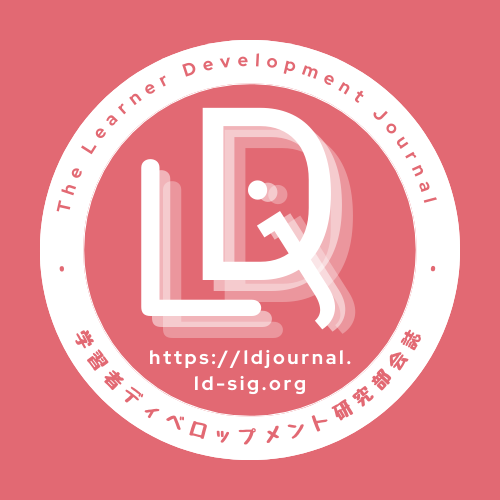
日本語版は下にあります。Japanese follows English.
March 2024
Reviewers are expected to engage with writers in a collaborative process to help them to develop their ideas rather than provide feedback in a traditional manner. The following will be helpful as a guide during the reviewing process:
1. Interest Does the writing catch the reader’s interest? Why (not)?
2. Audience Does the writing address peers (teacher-researchers and researchers) interested in learner development issues?
3. Context In what ways does the writing create a clear picture of particular learners or particular groups of learners with reference to the learner development issue(s) that the writing focuses on?
4. Voice Does the writing communicate to the reader a clear authorial voice, as well as include other voices (e.g., learners, colleagues, cited work) about the issue(s) explored in the writing?
5. Problematising stance In what ways does the writing raise interesting and relevant questions about the issue(s) it focuses on, without being descriptive and distant?
6. Specific and clear focus Does the writing develop a specific focus of inquiry, address and explore this with clarity throughout?
7. Reflective sense of learning In what ways does the writing construct and reflect on a process of learning by the author and the participants involved in the research about the issue(s) that is/are focused on?
8. Multi-perspectives In what ways does the writing attempt to examine the question(s)/ puzzle(s) /issue(s) that it focuses on from alternative perspectives, rather than from (a single) conventional viewpoint(s)?
9. Knots Does the writing avoid easy answers and try to unravel knots that the writer encounters in the practice, theory, and inquiry? How?
10. Criticality By the end, has the writing drawn out key issues, re-framed these, and raised new questions for the reader to take away and consider?
査読者へのガイドライン
2024年3月
査読者は従来的な方法でフィードバックを提供するのではなく、執筆者のアイデアを発展させる手助けをするために、共同的なプロセスを通して執筆者と関わることが期待されています。以下を、査読のプロセスのガイドとして参考にしてください。
1. 興味:読者の興味をつかんでいますか?
2. 対象読者:学習者ディベロップメントの発展に関する課題に興味を持つピア(教師研究者や研究者)に対応していますか?
3. 文脈:あなたが焦点を当てたい学習者ディベロップメントにまつわる諸問題を念頭におきつつ、具体的な学修者像を描いていますか?
4. 声:読者に自分自身の「声」をどのように伝えることができますか? あなたが探求したいテーマについてどのように他者の声(例:学習者、同僚、参考文献)を反映させることができますか?
5. 問題化の立場:記述的で隔たりのある表現にならずに、どのようにして焦点を当てたいテーマについて興味深く関連性のある質問を立てることができますか?
6. 具体的かつ明確な焦点:どのようにして特定の研究対象への調査を発展させ、それを全体を通して明確に探求させることができますか?
7. 学びの反省的意識:あなた自身の学習プロセスと、焦点を当てたテーマに関与する参加者の学習プロセスをどのように構築し、反映させますか?
8. 多角的な視点:(単一的な)従来の視点からではなく、新たな視点から焦点を当てたい質問や、謎、問題を検証できますか?
9. ノット:簡単な答えを避け、執筆者が実践、理論、調査において遭遇する複雑さを解明しようとできますか?
10. 批判的視点: 最終的にあなたの投稿論文は、重要な課題を浮かび上がらせ、これらを再構築し、読者に新たな質問を提起していますか?